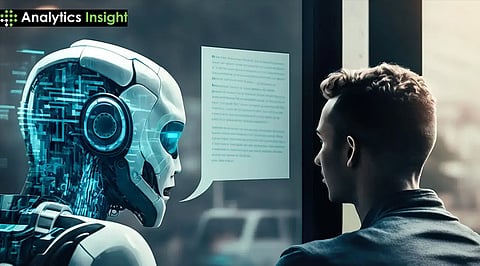

In 2025, artificial intelligence (AI) has become a cornerstone of technological advancement, with several key leaders and organizations driving its evolution. These entities are not only pushing the boundaries of AI capabilities but also shaping the infrastructure and ethical frameworks necessary for its integration into various sectors.
OpenAI, under the leadership of CEO Sam Altman, has been instrumental in advancing AI research and applications. In January 2025, OpenAI, in collaboration with Oracle and SoftBank, announced the "Stargate" project—a monumental $500 billion investment aimed at constructing extensive AI infrastructure in the United States. This initiative focuses on building data centers and electricity generation facilities in Texas to support AI development, with an initial investment of $100 billion. The project is expected to create approximately 100,000 jobs and significantly bolster the U.S.'s competitive edge in AI against global powers like China.
Oracle, led by CEO Larry Ellison, is a pivotal partner in the Stargate project. The company's expertise in data management and cloud services is crucial for developing the infrastructure required to support advanced AI systems. By investing in large-scale data centers, Oracle aims to facilitate the processing and storage needs of next-generation AI applications, thereby reinforcing its position in the technology sector.
SoftBank, under the leadership of CEO Masayoshi Son, has committed substantial resources to AI development through its involvement in the Stargate project. SoftBank's investment underscores its strategic focus on AI as a transformative technology with the potential to revolutionize various industries, including healthcare and telecommunications. The collaboration aims to harness AI for advancements such as early disease detection and personalized medical treatments.
Microsoft, led by CEO Satya Nadella, has significantly intensified its focus on AI by reorganizing its entire development team around AI initiatives. The establishment of the CoreAI - Platform and Tools group aims to integrate AI capabilities deeply within Microsoft's tools, platforms, and services. This strategic move reflects Microsoft's commitment to embedding AI across its product offerings, enhancing functionalities, and creating new revenue streams.
NVIDIA, under CEO Jensen Huang, continues to be a leader in AI hardware, particularly with its advanced graphics processing units (GPUs) essential for AI computations. The company's GPUs are in high demand, with tech giants purchasing tens or hundreds of thousands for their data centers to run generative AI projects. NVIDIA's strategic focus on AI has led to significant financial growth, with the company becoming the world's most valuable, surpassing Microsoft and Apple, in June 2024.
Anthropic, led by CEO Dario Amodei, is making significant contributions to AI safety and research. The company focuses on developing AI systems that are interpretable and aligned with human intentions, addressing critical concerns about the ethical implications of AI. Amodei emphasizes the importance of creating AI agents capable of executing complex tasks autonomously, which could transform various industries by enhancing efficiency and decision-making processes.
Palantir Technologies, under CEO Alex Karp, is leveraging AI to process and analyze large datasets for defense and intelligence applications. The company's platforms are instrumental in providing actionable insights, aiding in national security, and optimizing military operations. By capitalizing on classified military data to train AI models, Palantir is at the forefront of integrating AI into defense technologies, contributing to the modernization of military capabilities.
Google Cloud, led by CEO Thomas Kurian, is advancing AI applications across various industries, including retail, healthcare, and finance. The company emphasizes the importance of aligning AI deployments with core business objectives to fully realize returns on AI investments. By providing platforms that facilitate the integration of generative AI into business processes, Google Cloud is enabling organizations to drive growth, efficiency, and optimization.
Venture capitalist Vinod Khosla is a prominent advocate for AI's transformative potential. He posits that AI will significantly increase gross domestic product (GDP) and productivity, while also creating income disparities. Khosla suggests that the economic growth driven by AI could provide the means for universal basic income, as AI systems take over a substantial portion of jobs. His perspective highlights the dual-edged nature of AI advancements, underscoring the need for thoughtful policy considerations to address socioeconomic impacts.
In the political arena, President Donald Trump's administration has taken significant steps to bolster AI development in the United States. The announcement of the Stargate project, a $500 billion AI infrastructure initiative, exemplifies the government's commitment to advancing AI capabilities domestically. This project aims to enhance the U.S.'s competitiveness in AI, create jobs, and drive economic growth, marking a new era of public-private partnerships in technological innovation.
In conclusion, the landscape of AI in 2025 is being shaped by a confluence of technological innovation, strategic investments, and policy initiatives. Leaders across various sectors are not only advancing AI capabilities but also addressing the ethical, infrastructural, and socioeconomic challenges that accompany such rapid progress. Their collective efforts are paving the way for an AI-driven future that holds the promise of unprecedented advancements and necessitates careful stewardship to ensure equitable and beneficial outcomes for society.
